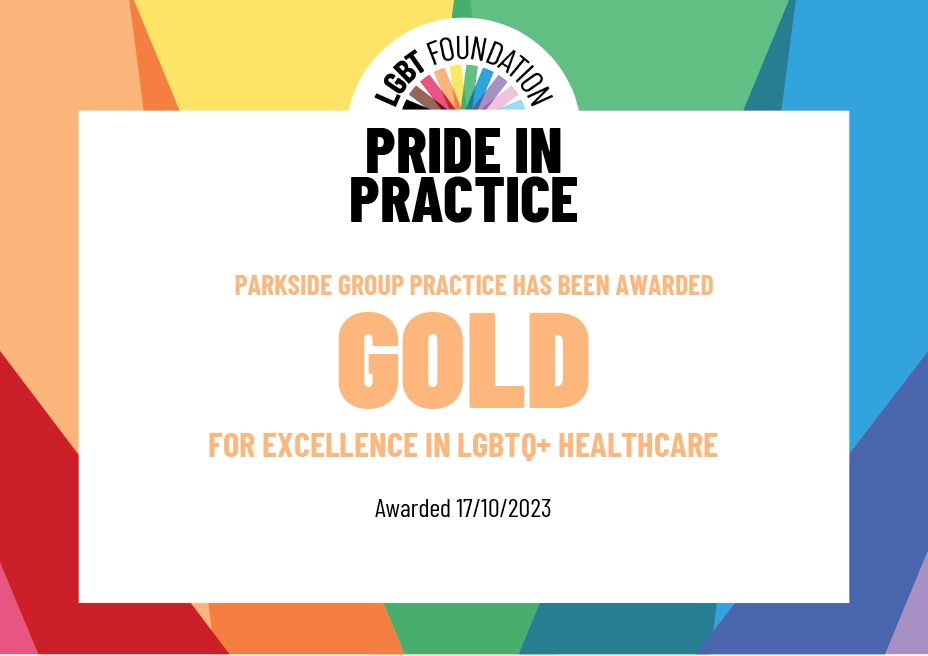We use cookies to help provide you with the best possible online experience.
By using this site, you agree that we may store and access cookies on your device. Cookie policy.
Cookie settings.
Functional Cookies
Functional Cookies are enabled by default at all times so that we can save your preferences for cookie settings and ensure site works and delivers best experience.
3rd Party Cookies
This website uses Google Analytics to collect anonymous information such as the number of visitors to the site, and the most popular pages.
Keeping this cookie enabled helps us to improve our website.
In Times of Bereavement
In the unfortunate event that a person has passed away, there are three things that must be done in the first few days;
- Get a medical certificate from your GP or hospital doctor (this is necessary to register the death)
- Register the death within 5 days (8 days in Scotland). You will then receive the necessary documents for the funeral.
- Make the necessary funeral arrangements.

Register the death
If the death has been reported to the coroner (or Procurator Fiscal in Scotland) they must give permission before registering the death.
You can register the death if you are a relative, a witness to the death, a hospital administrator or the person making the arrangements with the funeral directors.
You can use the Register a Death page on the gov.uk website that will guide you through the process. This will also explain the registration process for Scotland and Northern Ireland.
Arrange the funeral
The funeral can usually only take place after the death is registered. Most people use a funeral director, though you can arrange a funeral yourself.

Funeral directors
Choose a funeral director who’s a member of one of the following:
- National Association of Funeral Directors
- National Federation of Funeral Directors
- Society of Allied and Independent Funeral Directors
These organisations have codes of practice - they must give you a price list when asked.
Some local councils run their own funeral services, for example for non-religious burials. The British Humanist Association can also help with non-religious funerals.
Arranging the funeral yourself
Contact the Cemeteries and Crematorium Department of your local council to arrange a funeral yourself.
Funeral costs
Funeral costs can include:
- funeral director fees
- things the funeral director pays for on your behalf (called ‘disbursements’ or ‘third-party costs’), for example, crematorium or cemetery fees, or a newspaper announcement about the death
- local authority burial or cremation fees
Funeral directors may list all these costs in their quotes.
For free independent advice on bereavement issues, you can find more information at lastingpost.com.
Medical Examiner Office
A quick guide to the Medical Examiner Service in the Community
Medical Examiner System
The Health and Care Act 2022 received Royal Assent on 28 April 2022 – a ministerial announcement in June 2022 and a subsequent letter from NHS England in July confirmed the plan to implement the Medical Examiner System on a statutory basis with effect from April 2023.
In simple terms this means that from April 2023, all deaths in the community or acute settings that are not require to be referred to the coroner (sometimes referred to as non-coronial deaths) will be scrutinized by
a medical examiner.
The introduction of the medical examiner system is designed to:
- Provide bereaved families with greater transparency and opportunities to raise concerns
- Improve the quality/accuracy of medical certification of cause of death
- Ensure referrals to coroners are appropriate
- Support local learning/improvement by identifying matters in need of clinical governance and related processes
- Provide the public with greater safeguards through improved and consistent scrutiny of all non-coronial deaths, and support healthcare providers to improve care through better learning
- Align with related systems such as the Learning from Deaths Framework and Universal Mortality Reviews.
The Medical Examiner (ME)
Medical Examiners are senior medical doctors, who are trained in the legal and clinical elements of death certification processes. They provide independent, balanced scrutiny of deaths.
The role of the medical examiner includes:
- Reviewing the medical records.
- Liaising with the doctor who treated the patient in their final illness.
- Agreeing the proposed cause of death with the attending doctor and the overall accuracy of the medical certificate cause of death.
- Acting as a medical advice resource for the local coroner.
- Ensuring any concerns about the care of the patient are acted on appropriately
How independent will the Medical Examiner be if they are employed by the NHS?
In England, medical examiners are employed by NHS trusts and have a separate reporting line to the Regional Lead Medical Examiner. Those who work in medical roles within the NHS are accustomed to having different roles and different lines of accountability and to making this work, and it is expected that employing organizations will respect this distinction. Appraisal and revalidation processes will support independence.
The Medical Examiner Officer (MEO)
Medical examiner officers are a vital part of the medical examiner service in England, Wales and Northern Ireland.
MEOs come from a range of backgrounds, i.e. nursing, coronial and bereavement.
The role of the medical examiner officer includes:
- Being the first point of contact for bereaved families regarding the Medical Certificate of Cause of Death (MCCD).
- Manages cases from initial notification through to completion of the MCCD.
- To act as an intermediary between the bereaved and clinicians to establish and resolve any concerns relating to a patient’s death.
- Offer professional support to the ME in their responsibility of the scrutiny process for all deceased patients in the organization.
- To liaise with Coroner’s Officers and the Registrars
- Consistency as a constant in the office
- To establish the circumstances of individual patient deaths by performing a preliminary review of medical records for scrutiny by the medical examiner.
- Liaising with the doctors who treated the patient.
- Advising on the wording of the MCCD.
The Medical Certificate of Cause of Death (MCCD)
The MCCD enables the deceased’s family to register the death.
The doctors whom attended the deceased during their last illness has a legal responsibility to complete the MCCD. The doctor MUST have seen the deceased “ALIVE” within 28 days to issue the MCCD. This can include consultation using video technology (not telephone/audio).
It is normally done electronically by scanning and emailing the MCCD to the Croydon Register Office.
Deaths are required by law to be registered within 5 days of their occurrence unless there is to be a coroner’s postmortem or an inquest. Also on the rare occasion the MCCD is not completed in a timely fashion due to unavoidable delays.
After registering the death, the informant (normally the next of kin) gets a certified copy of the register entry (‘death certificate’). The Informant will be also given a “green form” which is for the funeral director to use to collect the deceased.
The first point of contact for the MCCD is the ME Office.
Please contact them via email with your name, relation to the deceased and contact number. You may also call. Please understand that there may be delays in accepting calls due to a large numbers of calls. We will endeavour to contact you in 24-48 hours.
The Community Process
Once a person have passed away in the community and the GP had been made aware. The GP will completed a referral form with the decease relevant medical records and send it to Medical Examiner Office based in Croydon University Hospital. The Care Homes are encourage to send us a courtesy email.
After the Medical Examiner scrutiny of the referral has been satisfactorily completed, and the cause of death is agreed, the ME will authorise the release of the MCCD.
The MCCD should be emailed to the ME Office and Croydon Registrar.
The medical examiner/officer will speak with the NOK to enquire if they have any concerns regarding the care provided to the deceased and discuss the MCCD. They will ensure you will understand the medical terminology being used and give you an opportunity to ask any questions that you may have about the proposed cause of death. The NOK at this stage can ask for a copy if they wish to have it, only 1 will be given.
There will be the provision to issue the MCCD (where appropriate) promptly in circumstances where it is required. However, the same level of scrutiny by the Medical Examiner’s office will be carried out for every
death.
Coroner Office
The ME office works closely with the coroner office. In the event that the ME has scrutinize the deceased records and have found issues that make it a reportable death. A referral will completed by the attending doctor. You will be called and informed once the referral is completed by either the attending doctor or the ME/MEO. This is a legal requirement that must be carried out. The coroner office will be given the NOK details. They will contact you to tell you the process. Please be aware that not all deaths that is referred to the coroner will have a post-mortem. Please refer to the guide to coroner services.
Register Office
The ME office send the MCCD to the registrar office along with the NOK details. They registrar also contract the ME office for any queries regarding the MCCD.
The ME office, Coroner office and Registrar office works closely together.
FAQ
The GP has not seen my relative in the last 28 days.
If this occurs the case may be referred to the coroner. All relevant information will be given to you in regards to this. In the event they were in the Hospital, shortly before passing (last 28 days), the GP will still need to complete the referral to notify us. The ME office will contact the hospital doctors to complete the MCCD.
I live far away and cannot attend Croydon to register.
In this even, contact Croydon Registrar and ask about registering by declaration at your local registrar.
What are common reason for delays?
The most common reason for delay is if the doctor is away due to sickness, days off, annual leave or have changed hospital. If they will not be returning, this case will be referred to the coroner and will follow the coroner process. You will be kept updated. Another common reason is delayed notification of the deceased to the ME office.
How long will this take.
We aim to complete scrutiny and issue the MCCD in 3 days or sooner. In the event of delays we do aim to contact you. However due to the volumes of those who have passed, there can be delays. You can also contact us and you will be informed of what is occurring.
Who else can register?
Legal representation such as lawyers, executors, a nominated representative or anyone who knew the deceased very well. There will be detailed questions asked at the registrar office. This information required can be found on the Croydon Council website.
Who will be spoken to?
The ME office aims to speak to the legal NOK. This also include the executors and lawyers. If you are calling on behalf of the NOK you must have gain permission.
Passing away on the weekend
Currently those whom have passed on the weekend will experience some delays due to the opening hours of the GP practice and the ME services. We understand this can be very distressing time, we send our sincerest apologies in advance and thank you for your patience.
How can the MCCD be issued quickly.
If the referring GP is made aware of a reason for a quick release (i.e faith deaths that requires a burial in 24 hours, child deaths etc), this will be added to the referral form. The ME office will priorities this scrutinising the medical records.
How to give feedback
Currently there is no formal way of giving feedback. Until then, a simple email to the ME office email will be reviewed. Feedback for the GP remains the same.
Useful websites
Tell Us Once is a service that lets you report a death to most government organisations in one go. The registrar can explain the Tell Us Once service when you register the death. They can either:
- complete the Tell Us Once service with you
- give you a unique reference number so you can use the service yourself online or by phone.


